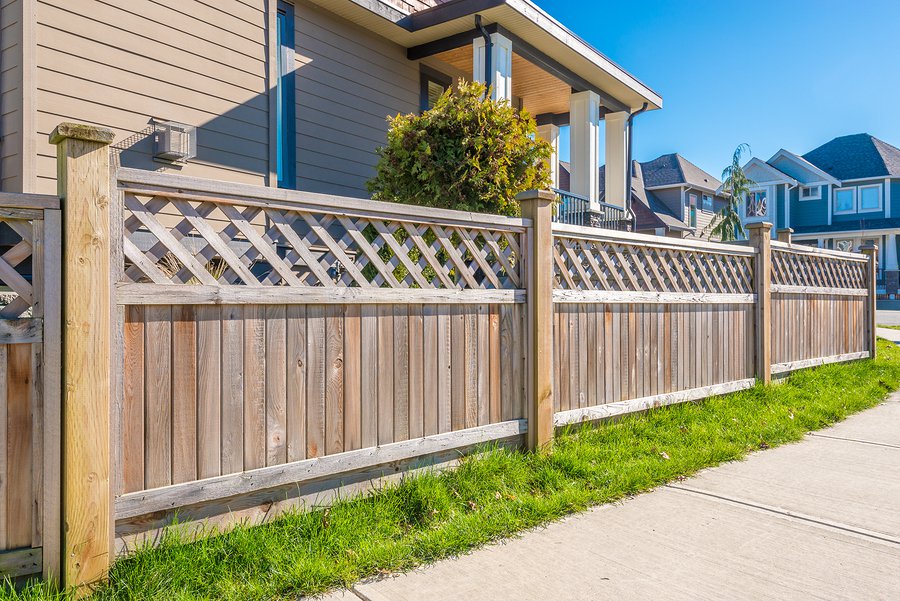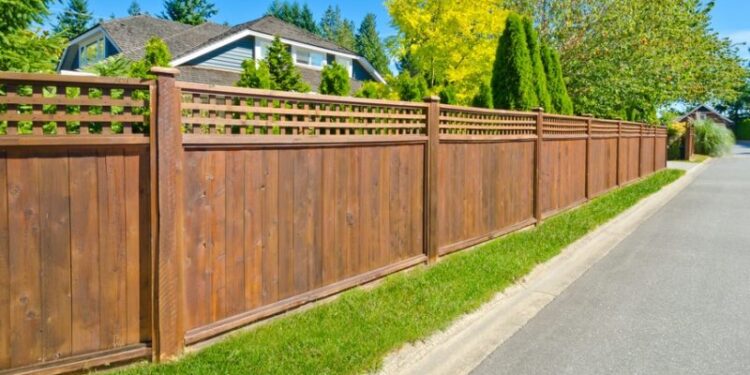Fences bring security, privacy, beauty, and increased property value. Selecting and installing a fence on your property can be an exciting project. However, there are several things to consider before building or repairing a barricade for your property. Whether you need to fix an existing or install a new fence, there are several important factors to consider before beginning this project, including your budget, to ensure it goes as smoothly as possible.
Your Fencing Goals
Whether you’re repairing an existing fence or putting up a new one, it’s essential to have some goals in mind. Do you want your barricade to be more decorative than functional? Do you need your fence for security purposes, such as keeping children and pets within the compound? These factors affect how much time and money you should spend on your fencing project. Your fencing goals can determine the suitable materials to use, where to install your fence (if applicable), and even what type of fence best suits your needs.
For example, if a property is fenced only with barbed wire because it sits next to woods occupied by wild animals at night – would most people still consider it safe? Or would they think twice before letting their kids play in its backyard during dawn and dusk hours when most wild animals prowl around looking for prey? Hence, it’s crucial to align your goals with your fencing structure and make sure both pieces complement each other.
Who Will Install or Repair Your Fence
Installing a fence is a delicate process that requires an experienced professional. Professional fence installers understand how different types of fencing materials react in different situations and can advise you on factors like weatherproofing, access to electricity, and ease of repair. The contractor should also ensure that they install your fence according to local ordinances and building codes. As such, an experienced fence installer like the Maintain to Profit Renovations company will ensure your fencing wall meets safety standards as well as make sure it’s aesthetically pleasing.

After installation, they can also handle your fence repairs, so you do not deal with strangers coming onto your property at all if you prefer not to. Be careful when choosing who will put up your new fence or fix any damages – never hire someone sight unseen! Meet with potential vendors first; ask for references; check out their work history online if possible. Ensure that they are insured so they won’t bring risk onto yourself!
Your Property Lines
Before deciding whether it’s time to repair an existing fence or put up a new one, you must determine and mark your property lines accurately. You will need accurate measurements so that your barricade doesn’t infringe on your neighbor’s yard—or vice versa. If there’s already fencing between your properties, it will help you avoid fencing in areas of wetland or other sensitive ecosystems. You can quickly obtain information about protected land from an experienced survey expert.
Accurate determination of your property lines helps prevent illegal encroachment into neighbor’s property or wetlands, ensures adequate buffer zones for neighboring landowners, and preserves aesthetic consistency with historic designations. Locating your property lines can save you money by preventing disputes later down the road over who owns what land or even demolitions and ensuring peace of mind.
Your Budget
As anyone who’s ever hired a fence company can tell you, fences aren’t cheap. While there are plenty of DIY options (and materials) out there, if you want your new fencing wall to stand up against time and elements like wind and water, it pays off in terms of money and effort to leave it for professionals. If you have an existing fence that needs fixing, be sure to consider its overall condition before giving an estimate; anything short of perfect might cost more than expected due to extra materials and labor costs.
Fencing costs estimates might include materials, installation, concrete work, and electrical work. The total price will depend on fence height and length and additional gateways, panels, and railings. Quotes from experienced fencing companies may also depend on design ranging from basic fences like a linear foot for chain link fencing to ornamental wrought iron fencing design.
Local Regulations and Permits
Installing the wrong type of fence can have legal consequences; research the rules and regulations in your area on where and how tall you can install barriers. For example, you might need to acquire special permits and observe building codes for your fence installation to get approval.
As far as inspections go, make sure you schedule them when you do significant repairs, especially installing a new fence. As a whole, it might end up costing more than the cost of replacing it, but it helps protect your investment. Most contractors will schedule an inspection during construction, but it’s a good idea to have a trusted individual take a look before signing off on anything.
Conclusion
With the proper planning, you can build a fence without much hassle. Research, plan and hire an experienced builder if necessary, but most importantly, know what you want to achieve so that you can develop a functional and beautiful fence for your property. You should be able to choose from materials that are environmentally friendly too, as well as labor-saving options like automatic gates, so you don’t have to go out every day and open and close them by hand. You can contact Maintain to Profit Renovations for professional installation.





